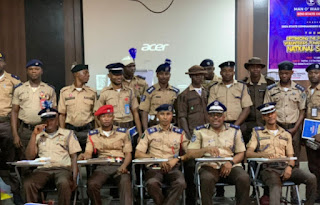HLPF 2018: Putting menstrual health on the 2030 Agenda

On July 11, 2018 Simavi and WSSCC hosted a panel discussion during the High-level Political Forum on Sustainable Development, about “Putting Menstrual Health on the 2030 Agenda.” This event was the 5th of a live webinar series related to menstrual health management and was attended by over 100 in person and online participants. The event was moderated by Hilda Alberda, Director PMEL and Menstrual Health Expert at Simavi and featured Dr. Inga Winkler, Lecturer at the Institute for the Study of Human Rights at Columbia University, Irene Gai, Programme Coordinator at Kenya Water for Health, and Mahbuba Kumkum, Programme Manager Ritu at Simavi Bangladesh.
Thematic Presenter: Dr. Inga Winkler (Columbia University)
In her keynote address, Dr. Winkler emphasized the importance of removing menstrual health (MH) strictly from the Water, Sanitation, and Hygiene (WASH) sector in order to unpack and address issues around menstruation at all levels. She stressed that need to look at the numerous ways that women are affected by menstruation, and how menstruation is directly linked to many of the goals on the 2030 agenda.
Topical presenter: Irene Gai (Kenya Water for Health) and Mahbuba Haque Kumkum (Simavi Bangladesh)
Ms. Gai and Ms. Kumkum also called for a cross-sectoral approach, specifically citing Goal 3 (Good Health and Well-Being), Goal 4 (Quality Education), Goal 5 (Gender Equality), Goal 6 (Clean Water and Sanitation), Goal 8 (Decent Work and Economic Growth), and Goal 12 (Responsible Consumption and Production) as areas impacted by menstruation. Ms. Gai and Ms. Kumkum also spoke about both the challenges and the progresses of implementing effective MH initiatives in their home countries of Kenya and Bangladesh respectively.
Discussion
After a lively discussion and audience Q&A, the panelists made the following suggestions on how to integrate and prioritize menstrual health within the SDG framework and national action plans.
Look beyond schools for implementing MH programs, there are menstruating women and girls who are not in schools who also need these services and are currently being left behind.Develop MH initiatives that go beyond providing pads. The preferences of women and girls in regards to their menstrual products should be considered and will allow them more agency.Promote a cross-sectoral approach to MH, with linkages to all the SDG’s in order to address all of the ways that menstruation can impact women’s lives. Menstruation is not just a WASH issue!Ensure participation of all, particularly those whose are traditionally marginalized or excluded. For example, indigenous women, women with disabilities, refugee and migrant women and girls, homeless individuals, and incarcerated women face overlapping forms of discrimination and are often left out of the MH conversation.There needs to be more systematic studies that gather disaggregated data that moves MH past pilot studies.When developing MH programs, consider all aspects and consequences of the program, including access to disposal methods and the environmental sustainability of those methods.Standardize menstrual health education as part of the national curriculum in schools.
As part of the MH webinar series organised by: WASH United, Simavi, World Vision, GIZ, activity of the MH Alliance. Link to the recording: https://vimeo.com/279541281.
This article was originally published by WSSCC
https://www.wsscc.org/2018/07/12/hlpf-2018-putting-menstrual-health-on-the-2030-agenda/



Comments